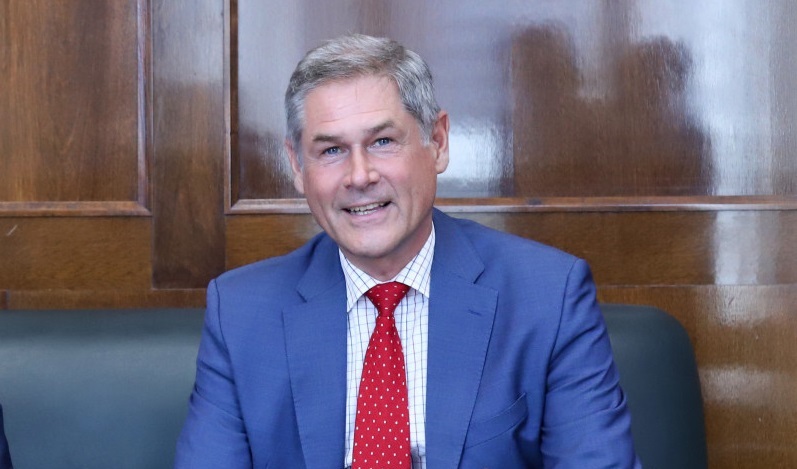During the Legislative Forum on Sustainable Mobility and the 2030 Agenda in Argentina, the words of Peter Neven, Minister of the Federal Republic of Germany, about climate change and the urgency to act accordingly, resonated strongly.
Contrary to the political vision of Javier Milei’s government, Neven emphasises the need for state intervention to drive the transition towards electromobility.
“If the state does not get involved, the energy transition will be costly,” he states, in line with the importance of a comprehensive government strategy.
He adds, “We cannot take 100 years because it will be too late for climate change.”
The German minister emphasises the urgency of clear goals, appropriate regulations, fiscal incentives, and the promotion of technological development to accelerate the adoption of electric vehicles (EVs) and combat climate change.
Germany, with its commitment to reduce greenhouse gas emissions by 65 per cent by 2030 and achieve climate neutrality by 2045, positions itself as a success story in energy transition.
In this context, he highlights that the energy sector, at 40 per cent, and transportation, at 20 per cent, are the main contributors to pollution.
It could be said that Germany is taking firm steps.
Currently, 50 per cent of electricity comes from renewable sources, while the target for 2030 is to increase this percentage to 80 per cent.
However, it’s important to note that some industries are excluded from these measures, such as heavy industry, steel production, and parts of the transport sector.
For these, the German minister emphasises the importance of the green hydrogen strategy.
“Argentina has all the opportunities to become the next Saudi Arabia due to the potential for green hydrogen production,” reveals Neven about the country’s potential to lead the energy revolution.
In this way, his conviction is clear that green hydrogen will transform global energy supply chains.
What specific actions has Germany taken to advance electromobility?
Mobility Portal Latinoamérica was part of the debate in which Peter Neven presented the success stories of his country.
For the automotive sector, Germany is betting on the concept of electric mobility for light transport vehicles and on hydrogen for heavy transport.
Regarding the strategy to promote the transition to EVs, Neven comments that in the transport sector, the goal is to reduce emissions by 50 per cent by 2030.
“To reach this figure, we need to have 15 million electric cars on the German market,” he explains.
And he points out: “To maintain such a significant fleet, it is estimated that we will need around a million public and accessible charging stations.“
To achieve this goal, the German government has taken a series of measures to lead the movement.
Some of these are regulations for public procurement, along with tax and direct subsidies for actors installing these charging stations.
It’s worth noting that Germany implemented a subsidy policy for the purchase of electric cars, which contributed to a significant increase in demand.
“Without the support of the state, this boost and increase would not have occurred,” he states.
The country experienced strong growth in the demand for electric vehicles, and the numbers tripled in just one year.
Neven maintains that this is related to the subsidy for consumers purchasing a 100 per cent EVs and the advancement of technology that allows travel throughout the country without issues.
However, in December 2023, the German Minister of Economy, Robert Habeck, announced the end of the environmental bonus for the purchase of electric units for both companies and individuals.
On the other hand, one of the challenges for Germany is the supply of necessary products for the production of electric cars, especially batteries.
In this regard, he highlights the construction of the largest battery plant in the country to date, a project that marks progress in local production.







